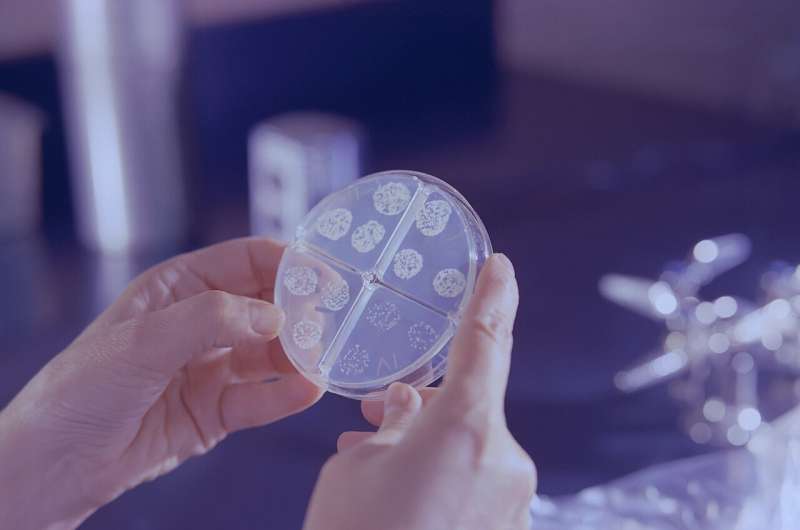This article has been reviewed according to Science X's editorial process and policies. Editors have highlighted the following attributes while ensuring the content's credibility:
fact-checked
peer-reviewed publication
trusted source
proofread
Researchers make significant step in fight against drug resistance in TB

University of Otago researchers have discovered new ways to treat antibiotic-resistant strains of tuberculosis (TB), opening the door to new approaches for tackling the disease that kills about 4,000 people a day.
Led by Ph.D. candidate Natalie Waller and Senior Author Dr. Matthew McNeil, of the Department of Microbiology and Immunology, researchers were able to identify antibiotics that could rapidly kill drug resistant strains of TB and when combined could stop drug resistance from occurring altogether.
TB is a major global cause of infectious disease morbidity and mortality, second only to COVID-19 and is one of the hardest infections to treat. Ten million people develop the disease every year and it kills about 4,000 people a day. About 300 cases of TB are diagnosed in New Zealand each year.
Adding to the challenge, is that drug-resistant strains of the disease—that are very hard to treat and have limited treatment options—are spreading at an "alarming rate."
"We need not only new drugs, but better drug combinations that can improve treatment success and prevent the further spread of antibiotic resistance," Dr. McNeil says.
Typically, antibiotic resistance leads to reduced sensitivity, but in some cases becoming resistant to one antibiotic can make a pathogen more sensitive to other completely unrelated antibiotics, he says. However, this phenomenon— collateral sensitivity—has largely been unexplored in TB, until now.
"It is very hardy, resilient and hard to study in the lab because it is a dangerous pathogen that grows extremely slowly.
"To overcome this, our study used a weakened non-virulent strain of Mycobacterium tuberculosis that cannot cause disease or survive outside of the lab to generate strains that were resistant to different antibiotics," he says.
Researchers then determined whether the drug-resistant strains of the bacterium had either increased or reduced sensitivity to other antibiotics.
"We wanted the results of our work to have the greatest chance for clinical impact. For this reason, our study placed an emphasis on drugs that are either clinically approved or in pre-clinical development," Dr. McNeil says.
"Excitingly, this work identified a number of instances in which a particular drug-resistant strain was more sensitive to antibiotics that targeted a completely unrelated pathway. We then showed we could use these specific drugs to rapidly kill drug resistant strains as well as design unique drug combinations that prevented the emergence of drug resistance.
"Put simply, this work demonstrates that drug resistant strains of M. tuberculosis have unique weaknesses, that if we can identify them, can be targeted to greatly reduce treatment times and prevent the emergence of drug resistance," he continues.
Dr. McNeil says work will now need to focus on further extending these findings into in animal studies. "There is still work to do, but this is certainly a significant step in the fight again anti-microbial resistance," he concludes.
The research is published in the journal Nature Communications.
More information: Natalie J. E. Waller et al, The evolution of antibiotic resistance is associated with collateral drug phenotypes in Mycobacterium tuberculosis, Nature Communications (2023). DOI: 10.1038/s41467-023-37184-7
Journal information: Nature Communications
Provided by University of Otago





















